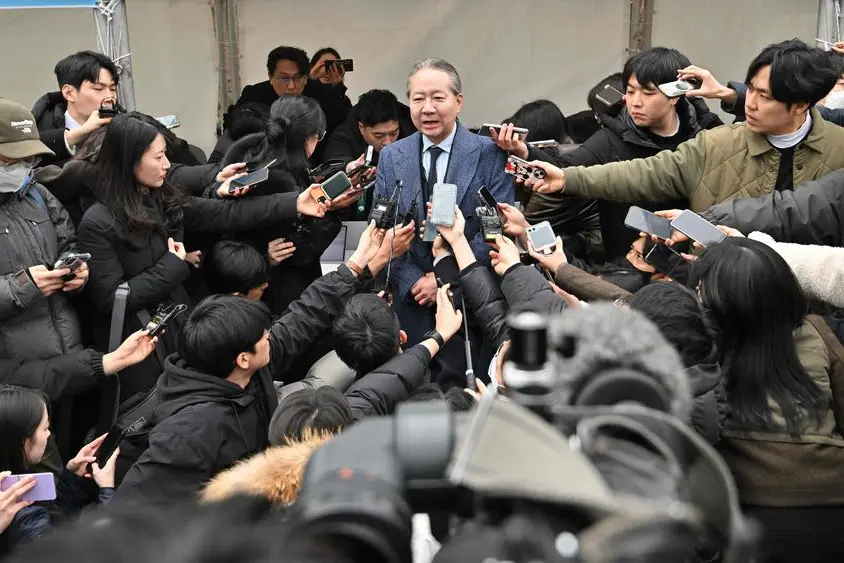PHOTO
South Korea said Friday that reports of a "medical catastrophe" were overblown despite a near three-week walkout by junior doctors, but vowed to improve pay and conditions for medics.
Thousands of trainee doctors quit working on February 20 over reforms aimed at easing doctor shortages by increasing the number of medical students -- which they claim is the final straw for overworked and underpaid early career professionals.
Despite government warnings of legal action, including medical licence suspensions, more doctors have joined the walkout this week, official data shows.
This has led to surgery cancellations, long wait times and delayed treatments at major hospitals.
Seoul has mobilised military doctors and earmarked millions of dollars of state reserves to ease service shortfalls, but denied Friday there was a full-blown healthcare crisis.
"The term 'medical catastrophe' some are using to describe the situation is an exaggeration," Second Vice Health Minister Park Min-soo told a press conference.
"It is absurd to suggest that medical care would become chaotic simply because resident doctors, who are in training, have left their posts."
Park said the emergency health care system remained "stable", adding that the government was still moving to suspend the medical licences of doctors involved.
Even so, he urged medics to return to work, outlining new measures to improve pay and conditions for junior doctors, including a new one million won ($760 USD) monthly payment for paediatric trainees, plus a review of the continuous 36-hour work period, which is a major gripe of junior doctors.
Under South Korean law, doctors are restricted from striking, and the health ministry has asked police to investigate people connected to the work stoppage.
The government has also accused the Korea Medical Association, which has spearheaded the walkout, of "blacklisting" trainees who did not participate, Yonhap news agency reported.
Park said the government has seen reports suggesting many trainees are apprehensive about returning to work, fearing they would face ostracisation or "bullying" within the medical community if they do so.
He said the government hoped doctors "will overcome your fear and return to the patients' side strong and courageous. The government will do its utmost to protect you."
The government is pushing to admit 2,000 more students to medical schools annually from next year to address what it calls one of the lowest doctor-to-population ratios among developed nations.
Doctors say they fear the reform will erode the quality of service and medical education, but proponents accuse medics of trying to safeguard their salaries and social status.





















